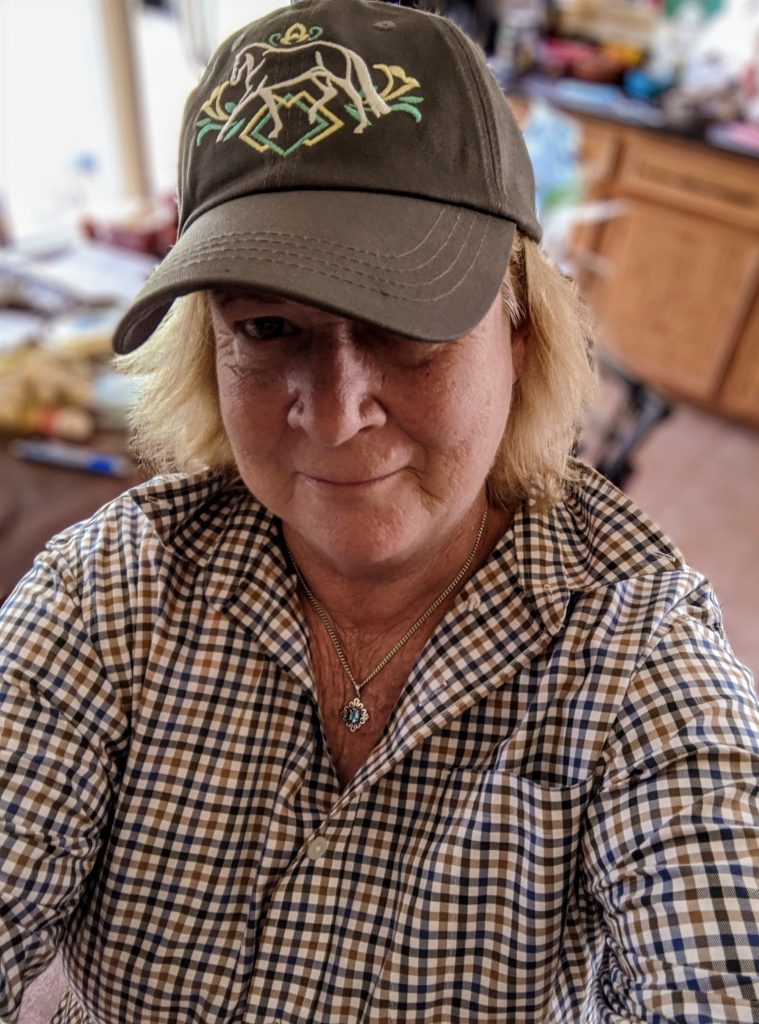Research Interests
- Late seventeenth and early eighteenth-century literary culture
- Early modern women writers
- History of authorship
- Reading and handwritten culture
- Digital cultures and electronic media
Research Areas
- Early Modern Studies
- Material Culture Studies
- Gender and Sexuality
- Book History
- Authorship Studies
- 18th-Century British
Editorial and Advisory Board Appointments
- 2014- Editorial Advisory Board, ELR
- 2011- Executive Council, Folger Institute, Folger Shakespeare Library
- 2011- Editorial Board, Philological Quarterly
- 2010- International Advisory Board, The Centre for Women’s Writings and Literary Culture, Aberystwyth University, UK
- 2010- Editorial Advisory Board, Authorship, University of Ghent
- 2009- Advisory Board, Palgrave History of Women Writers series (UK)
- 2006- Advisory Board, Journal of Early Modern Women Studies
- 2005-2009 Editor, 17th Century Section, Blackwell’s Literature Compass, (U.K.)
- 2004- Advisory Board, Renaissance English Text Society
Educational Background
- Ph.D., Cambridge University, 1981
- B.A., Wellesley College, 1977
Industry Experience
-
2022- Editorial Board of Eighteenth-Century Studies
2021- Editorial Board of ITER
Awards & Honors
- University Distinguished Teaching Award, Texas A&M University, 2000
- Association of Former Students Distinguished Teaching Award, College of Liberal Arts, 1986
- Honors Program Teacher/Scholar Award, TAMU, 1986
- 2022-2023 College of Arts and Sciences Merger Grant, with Dr. Lawrence Griffing
- 2021 Association of Former Students Distinguished Achievement Research Award
- College of Liberal Arts Research Award, fall, 2008
- John Simon Guggenheim Fellowship, 2003-4
- Internal Fellowship, Glasscock Humanities Center, Texas A&M University, 2001-2
- John Paul Abbott Professorship in Liberal Arts, Texas A&M University, 1997
- American Council for Learned Societies (ACLS) Fellowship, 1997
- College Research Award, College of Liberal Arts, 1996
- NEH Tools Grant, 1991-93, 1993-96,Textbase of Women’s Writing in English 1330-1850; with Prof. Susanne Woods (Director), Stuart Curran, Elizabeth Kirk, Elizabeth Hageman, and Patricia Caldwell, 1991-96
- American Council of Learned Societies, Fellowship, 1989-90
- National Endowment for the Humanities Interpretive/Research Projects Grant, Women Writers in English, 1330-1830 Project ($250,000); with Profs Susanne Woods (Director), Stuart Curran, Patricia Caldwell, Elizabeth Hageman and Elizabeth Kirk. Particular responsibility: 1650-1750 section, manuscript and print texts, 1988-90
Selected Publications
Monographs:
Early English Periodicals and Early Modern Social Media. Cambridge University Press, 2024
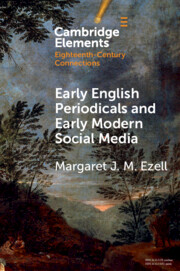
Using the lens of early modern social authorship and contemporary social media, this Element explores a new print genre popular in England at the end of the seventeenth and early eighteenth centuries, the periodical. Traditionally, literary history has focused on only one aspect, the periodical essay. This Element returns the periodical to its original, complex literary ecosystem as an ephemeral text competing for an emerging audience, growing out of a social authorship culture. It argues that the relationship between authors, publishers, and audiences in the early periodicals is a dynamic participatory culture, similar to what modern readers encounter in the early phases of the transition from print to digital, as seen in social media. Like our current evolving digital environment, the periodical also experienced a shift from its original practices stressing sociability to a more commercially driven media ecology. This title is also available as Open Access on Cambridge Core.

The Oxford English Literary History Volume V, 1645-1714 The Later Seventeenth Century. Oxford University Press, 2017
Nominated for the Gottschalk Award (ASECS) and the James Russell Lowell Prize (MLA)
This volume covers the period 1645-1714, and removes the traditional literary period labels and boundaries used in earlier studies to categorize the literary culture of late seventeenth-century England. It invites readers to explore the continuities and the literary innovations occurring during six turbulent decades, as English readers and writers lived through unprecedented events including a King tried and executed by Parliament and another exiled, the creation of the national entity ‘Great Britain’, and an expanding English awareness of the New World as well as encounters with the cultures of Asia and the subcontinent.

The Companion to The Oxford English Literary History Volume V, 1645-1714. Oxford University Press, 2017
This volume in the Oxford English Literary History series covering 1645–1714 removes the traditional literary period labels and boundaries used in earlier studies to categorize the literary culture of late seventeenth-century England, from the Interregnum, through the Commonwealth, the Restoration, and the first decades of the eighteenth century.
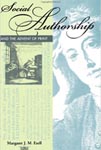
Social Authorship and the Advent of Print. Johns Hopkins University Press, 1999
How did academic and literary writers living in rural Britain in the 1680s establish their careers and find audiences for their work? What factors influenced the choices of essayists and dramatists who lived outside London and the university cities? Who read the works of regional poets and natural scientists and how were they circulated? In this engaging study of the development of literary industry and authorship in early modern Britain, Margaret Ezell examines the forces at work at a time when print technology was in competition with older manuscript authorship practices and the legal status of authors was being transformed.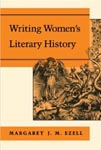
Writing Women’s Literary History. Johns Hopkins University Press, 1993
By championing the recovery of “lost” women writers and insisting on reevaluating the past, women’s studies and feminist theory have effected dramatic changes in the ways English literary history is written and taught. In Writing Women’s Literary History, Margaret Ezell critically examines these successful women’s literary histories and applies to them the same self-conscious feminism that critics have applied to more traditional methods.
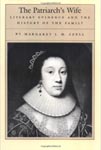
The Patriarch’s Wife: Literary Evidence and the History of the Family. University of North Carolina Press, 1987Contemporary historians have commonly viewed the family of the past as rigidly authoritarian, with power resting in the man of the house. In her innovative revisionist study Margaret Ezell examines this modern model of domestic patriarchalism in seventeenth-century England and finds it oversimplified and misleading. Ezell questions whether the literary evidence presently used to reconstruct the lives of seventeenth-century women– diaries, plays, poems, and treatises on domestic piety–accurately reflects the lived experiences of the period.
Edited Volumes:
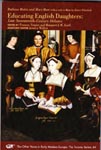
With Frances Teague, eds. Educating English Daughters: Late Seventeenth-Century Debates by Bathsua Makin and Mary More. Arizona Centre for Medieval and Renaissance Studies, 2016
Mary Mare and Bathsua Makin wrote essays on female education that circulated in manuscript and print in the seventeenth century. This edition, lightly modernized and with substantial, rigorous introductions and useful notes, makes these two important texts – and a third by Robert Whitehall written in response to More – more accessible to contemporary readers.
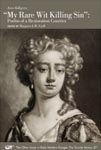
“My Rare Wit Killing Sin”: Poems of a Restoration Courtier, Anne Killigrew. Toronto: Centre for Renaissance and Reformation Studies, 2013
This is the first modern edition of verse by Anne Killigrew, a poet and portrait painter born in 1660 at the very start of the Restoration, who grew up as part of the complicated political, religious, and artistic worlds of the Restoration courts of Charles II and his brother James, Duke of York. Killigrew never chose to print her verses, but instead participated in a literary circulation network including family, friends, and members of the court.
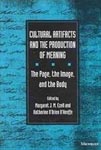
With Katherine O’Brien O’Keeffe. Cultural Artifacts and the Production of Meaning: The Page, The Image, and The Body. University of Michigan Press, 1994
An illuminating survey of the impact of technical modes of production on the creation of meaning in diverse media.
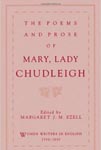
The Poems and Prose of Mary, Lady Chudleigh. Oxford University Press, 1993
The first edition of the collected poetry and prose of the Restoration feminist, Mary, Lady Chudleigh (1656-1710), this volume includes The Ladies Defence as well as her final prose meditations. New biographical and bibliographical information in the Introduction revises the existing accounts of her life and literary career. The volume makes available for the first time the complete range of Chudleigh’s literary experiments and calls for a reassessment of the image of the woman writer of the Restoration.
- “Writings by Early Modern Women”, Guest Editor with Peter Beal, English Manuscript Studies 1100-1700, 9 (2000)
- “Creating a Literary Series: The Brown University Women Writers Project and the Oxford University Press
‘Women Writers in English, 1350-1850 Texts,’” Guest Editor, The South Central Review 11 (Summer, 1994)
Articles and Chapters
- “Manuscript and Print: Which is More Important for Understanding Women’s Writing in the Early Modern Period?” Palgrave Encyclopedia of Early Modern Women’s Writing in English eds, P. Pender and R. Smith (2022) https://doi.org/10.1007/978-3-030-01537-4_71-1
- “Recovery” in Palgrave Encyclopedia of Early Modern Women’s Writing in English eds, P. Pender and R. Smith (2022), https://doi.org/10.1007/978-3-030-01537-4_246-1
- “’Shew Myself a Loving Mother’: Teaching Modesty Tropes,” in Pedagogy and New Feminist Formalism, ed Michelle Dowd and Lara Dodds (Univ. of Nebraska Press, 2021), 238-252
- “The Ignorant Reader: Imagining Seventeenth-Century English Vernacular Literacies,” in Haben Sua Fata Libelli: Studies in Book History and the Classical Tradition in Honor of Craig Kallendorf, eds. Giancarlo Abbamonte, Patrick Baker, and Steven Oberhelman (Brill, 2021), 431-445
- “Invisible Women,” Introduction for special issue “Women and Book History, 1660-1830,” Huntington Library Quarterly 84.1 (2021), 1-12.
- “Lively Effigies: Memorial Ephemera,” Eighteenth-Century Life, 44.2 (2020), 134-155
- “Epilogue,” in After Print: Eighteenth-Century Manuscript Cultures, ed. Rachael Scarborough King (University of Virginia Press, 2020), 310-320.
- “Women as Readers, Writers, and Patrons” in The De Gruyter Handbook of Renaissance Literature, ed. Ingo Berensmeyer (De Gruyter, 2019), 182-202.
- “The Letter of the Lord: Seventeenth-Century Sectarian Women, False Professors, and Re-thinking Literacy” in New Ways with Old Texts, ed. Arthur Marotti (Tempre, AZ: Renaissance English Text Society, 2019), 311-320.
- “European Manuscript and Print Cultures, 1500-1700” in The Cambridge Handbook of Literary Authorship, ed Ingo Berensmeyer, Gert Buelens and Marysa Demoor (Cambridge University Press, 2019), 115-32
- “ John Bunyan and Gender” in The Oxford Handbook of John Bunyan, ed. Michael Davies (2018), 117-32
- “Afterword: Mapping Early Modern Women’s Literary History,” Early Modern Bookscapes, eds Elizabeth Sauer, Leah Knight, and Micheline White (University of Michigan Press, 2018), 274-77
- “But the Lord said to me, ‘Say not guilty’: recreating courtroom drama in trial accounts by seventeenth-century sectarian women” in Oral Tradition and Book Culture, eds Pertti Antttonen, Cecelia af Forselles, and Kirsti Salmi-Niklander (Helsinki: Finnish Literature Society, 2018)
- “Seventeenth-century English Reading Cultures and Multimodal Literacies” Eighteenth- Century Studies3 (2018), 357-73.
- “Invisibility Optics: Aphra Behn, Esther Inglis and the Fortunes of Women’s Works” inA History of Early Modern Women’s Writing, Patricia Phillippy (Cambridge University Press, 2018), 27-45.
- “‘Her Book’ and Early Modern Modes of Collaboration,” in Gender, Authorship and Early Modern Women’s Collaboration, ed. Trisha Pender (Palgrave, 2017), 245-58.
- “Big Books, Big Data, and Reading Literary Histories,” special issue of Eighteenth-Century Life3 (2017), 3-19
- “Body and Soul” in The Oxford Handbook of Early Modern Literature and Religion, eds Helen Wilcox and Andrew Hiscock (Oxford University Press, 2017), 598-612
- “The Times Displayed: Late Seventeenth-Century English Commemorative Broadsheets and Media Hybridity,” in Yearbook of English Studies, special issue on English Literature and Book History, eds Sandro Jung and Stephen Colcough, 45 (2015), 12-34
- “Handwriting and the Book” in The Cambridge Companion to the History of the Book, ed. Leslie Howsam (Cambridge: Cambridge University Press, 2015), 92-106
- “Late Seventeenth-Century Women Writers and the Penny Post: Early Social Media Forms and Access to Celebrity,” in Material Cultures of Early Modern Women’s Writing, eds Patricia J. Pender and Rosalind Smith (London: Palgrave, 2014), 140-58
- “Dying to Be Read: Gallows Authorship in Late Seventeenth-Century England,” Authorship, 3 (2014): Web: < http://www.authorship.ugent.be>.
- “Late Seventeenth-Century Women Poets and the Anxiety of Attribution” in Early Modern Women and the Poem, ed. Susan Wiseman (Manchester: University of Manchester Press, 2013), 147-161.
- “Cooking the Books, Or the Three Faces of Hannah Wolley” in Reading and Writing Recipe Books, ed. Michelle di Meo and Sara Pennell (Manchester: University of Manchester Press, 2013), 159-78.
- “The Exemplary Wife: Anna Cromwell Williams’s Book of Secrets” in ‘In the Prayse of Writing’: Early Modern Manuscript Studies [sub-title] Essays in Honour of Peter Beal. eds Steven May and Susan Cerasano (London: British Library, 2012), 281-99.
- “Seventeenth-Century Female Author Portraits, Or, The Company She Keeps,” ZAA: Zeitschrift fur Anglistik und Amerikanistik: A Quarterly of Language, Literature and Culture 60 (2012), 31-45.
- “Elizabeth Isham’s Books of Remembrance and Forgetting,” Modern Philology 109 (2011), 71-84.
- “Editing Early Modern Women’s Manuscripts: Theory, Electronic Editions, and the Accidental CopyTexts” in Literature Compass special issue on digital end electronic editions and editorial theory (2010); www.literature-compass.com
- “Afterword: Critical Distance,” in Early Modern Women and Transnational Communities of Letters, eds. Julie D. Campbell and Anne R. Larsen (Aldershot: Ashgate Press, 2009), 281-87.
- “Invisible Books,” in Producing the Eighteenth-Century Book: Writers and Publishers in England, 1650-1800, eds. Pat Rogers and Laura Runge (University of Delaware Press, 2009), 53-69
- “Performance Texts: Arise Evans, Grace Carrie, and the Interplay of Oral and Handwritten Traditions during the ‘Print Revolution’,” ELH 76 (2009), 49-73.
- “Never Boring, Or Imagine my Surprise: Interregnum Women and the Culture of Reading Practices” in Imagining Self: Essays in Honor of Patricia Meyer Spacks, eds. Rivka Swenson and Elise Pugh (AUP: University of Delaware: 2008), 155-69.
- “The Laughing Tortoise: Speculations on Manuscript Sources and Women’s Book History” ELR 38 (2008), 331-55

